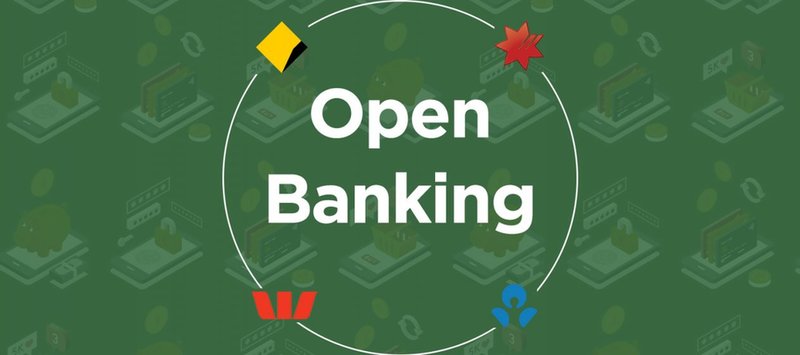REGULATION
Open Banking and the law of unintended consequences
Open Banking has been hailed as a significant market opportunity for financial firms. But, as Mohamed Dabo reports, without fair play and reciprocity, it could turn out to be more of a threat than an opportunity for smaller firms

O
pen banking is a driving force of innovation in the banking industry. By relying on networks instead of centralisation, open banking can help financial services customers to securely share their financial data with other financial institutions.
But in banking, as in commerce, a level playing field is an important concept about fairness. It means, not that each player has an equal chance to succeed, but that they all play by the same set of rules.
Government regulations are intended to provide such fairness, since all participants must abide by the same rules.
However, they can have unanticipated or unintended effects. For example, hamstringing banks’ ability to compete with large technology groups. If the rules affect different participants differently, then they are not actually the same.
Julian Skan, senior managing director for banking at Accenture, said Open Banking creates an opportunity for companies to find new revenue streams, but added:
“I do think that the banks have a point in that this was written to regulate banks, and it is not a level playing field.”
Companies outside banking regulation “have much less to worry about”, Skan said, whereas “banks have got their hands tied behind their back — and it is going to hurt”.
The following discussion of the issues is based on joint research by Banco Santander and the Financial Times.

“Data lies at the heart of the problem”
In the rush to open up the market to newcomers, there is a very real danger of entrenching an unintended consequence: eroding the reliable banking systems which have been the backbone of nations for centuries.
The problem boils down to one word: reciprocity. Or rather the lack of it, which creates an uneven playing field between incumbent banks and the giant tech platforms – such as Google – where customer data is concerned.
“I think the business models have evolved and so rules and regulations need to evolve too,” says Ana Botin, the executive chairman of Santander, “they need to be rethought fundamentally.”
Data lies at the heart of the problem. Under the rapidly evolving rules of open banking or PSD2, if an individual customer wants to work with a new provider of financial services, their existing bank is obliged to hand over their data - and with it potentially the relationships the bank has built up over a long period of time.
Yet, as has been seen in recent years, should financial services companies ask the major platforms for their customers’ data, the same obligation does not apply.
This happened in 2016, when Admiral was forced to abandon plans to use customers’ Facebook posts as a tool in setting insurance premiums.
While customers were happy to give their consent, on the grounds that it could help them secure a lower premium, Facebook rejected the request on the grounds that it violated the platform’s terms of service.
“This is totally asymmetrical, and this doesn’t make any sense because it gives them a huge advantage,” adds Botin.
“You can have access to much more data if you are a big platform than if you are a bank today in Europe. I think we should have the same obligations and the same rights.
“I am 100% in favour of open banking individuals owning their data. However, timing is everything in business and life. The way open banking is being set up is a fundamental risk to the business model of banks. The most critical asset any company has is data. For banks this has been the case for generations.”
“Reciprocity is fundamentally important”
This fundamental imbalance is familiar ground for governments as they wrestle with regulating the brave new world of open banking.
Yet Imran Gulamhuseinwala, who was appointed by the Competition and Markets Authority to head up Open Banking in the UK, argues that the banks are overstating the case.
“The data genuinely has value, and the data that is held by the financial institution belongs to the customer,” he says. “So, what we’re doing in open banking is allowing customers to take back control of their data.
“The fundamental principle is that it’s the customer’s data, but we’re not talking about all the data the bank holds. We’re just talking about the data the customer has provided to the bank and that has been generated by their activity with the bank. As for credit scores, insights and so on, that’s the bank’s intellectual property.
“My message to the banks is a simple one: stop thinking about open banking as a compliance exercise, stop thinking about this as an existential threat, embrace it, recognize these fundamental principles and then actually figure out how the pie gets bigger.
“Figure out how you can work on the side of the consumer and actually help them navigate this very complicated world.
“I do think reciprocity is fundamentally important. In the UK it is all about starting with banks.”
Yet this arguably skims over some major issues – such as the stark differences in tax burdens between European banks and the giant international platforms.
If a company provides payments in Spain and makes a profit on them, they should in theory pay the same tax as any other company. But as Facebook, Amazon have controversially demonstrated, this is not the case.
Ana Botin says: “It’s not just about taxing digital activities because Santander does a lot of digital activities and pays a lot of tax on them. We need to have a fair taxation system - it’s a very obvious thing, and it has to be reciprocal from day one.”
“Serious questions about security and compliance”
Tax aside, meanwhile, there are serious questions to be asked about security and compliance: two areas for which banks are held to stringent account.
As Jimmy Wales, the co-founder of Wikipedia, sees it, platforms should be required to allow consumers a convenient and standardised way to extract their data.
“So right now, if I decide, and a bunch of my friends decide we don’t like Facebook any more, and we want to move somewhere else. Well, all my photos are there. All of my connections are there - it’s really not trivial to move.
“The ability to export that data can be really game changing in terms of having a competitive field of play.”
The Cambridge Analytica scandal gave many people pause for thought about how their data is being shared, though online consumers still give away their privacy in all kinds of unintended ways simply by clicking a consent button for previously unknown quiz applications.
“I think it’s a fundamental right to share my banking data with whoever I like,” adds Wales. “It’s my data but there is a fundamental concern that people don’t necessarily understand what all the implications of sharing that data may be.
“We build these institutions and mechanisms which are incredibly complicated. From a consumer perspective, all I want to do is spend my money somewhere. Am I really expected to understand the intricacies of the data sharing arrangements and legalities?”
These are exciting times but, if open banking is to work for us all, there is clearly much work still to be done.